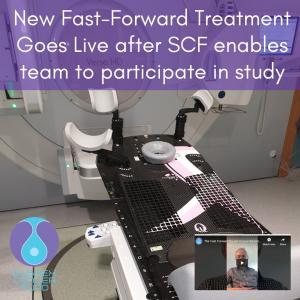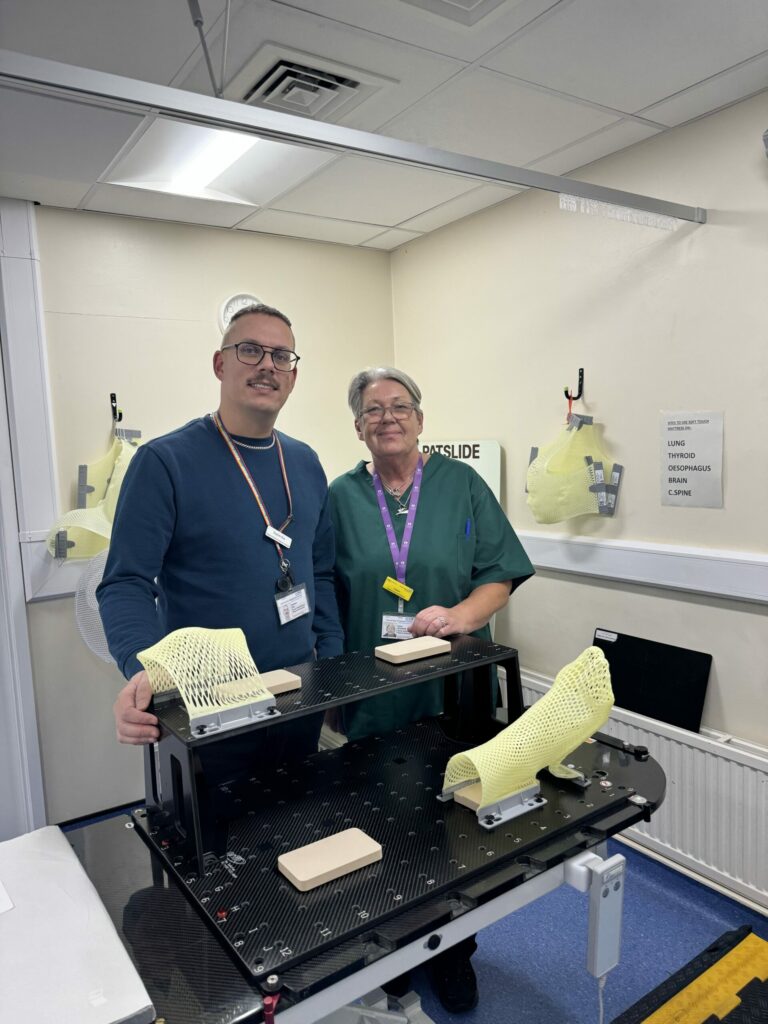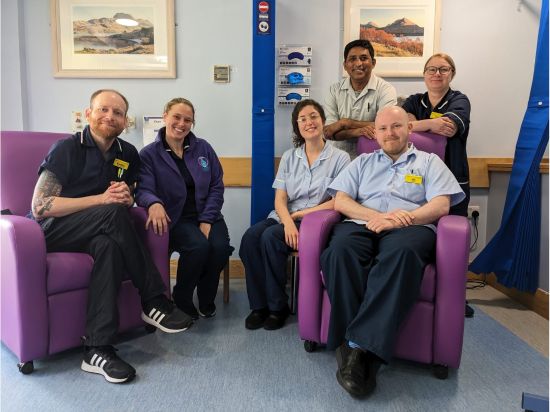 A new ‘Fast-Forward’ radiotherapy treatment that allows women with breast cancer to undergo radiotherapy treatment in just one week of treatment sessions compared to the traditional three weeks has now gone live. The new regime can be considered the new standard of care for a majority of breast cancer patients.
A new ‘Fast-Forward’ radiotherapy treatment that allows women with breast cancer to undergo radiotherapy treatment in just one week of treatment sessions compared to the traditional three weeks has now gone live. The new regime can be considered the new standard of care for a majority of breast cancer patients.
The Sussex Cancer Fund is delighted to have made participation in this and other studies possible by funding a research role and providing grants for research projects.
The video below shows Dr David Bloomfield, Clinical Oncologist at the Sussex Cancer Centre & Chairman of the Sussex Cancer Fund, talking about the study and the involvement of the Sussex Cancer Fund.
Below are some excerpts from a press release that was produced by NIHR (National Institute for Health Research) which outlines the study and its results.
One-week course of radiotherapy could benefit women with early-stage breast cancer, study finds
● A one-week course of radiotherapy in fewer but larger daily doses found to be as safe and effective as standard three-week therapy for women following surgery for early-stage breast cancer, researchers find
● The protocol is being eagerly sought by hospitals to help reduce demands on the NHS during the Covid-19 pandemic
Women with early-stage breast cancer can be treated with fewer but larger daily doses of radiotherapy delivered in a shorter overall duration compared with the current standard, research finds.
A pioneering study involving more than 4,000 patients evaluated the effectiveness of two different radiotherapy doses each delivered over five days in one week compared with standard radiotherapy currently delivered in 15 doses over three weeks. Researchers found that delivering a shorter course to women who have undergone surgery for early-stage breast cancer was as safe and effective as the current standard of three weeks.
Breast cancer is the most common cancer affecting women worldwide, with many of the wealthiest countries using around 30% of their total radiotherapy services for treating breast cancer. There are around 55,200 of new cases of breast cancer a year in the UK – around 150 a day. In total 81% of patients diagnosed have surgery to remove the tumour as part of their primary cancer treatment, with 63% undergoing radiotherapy. Reducing standard radiotherapy treatment for breast cancer from 3 weeks to 1 week would save the NHS over £40 million per year.
Historically women received radiotherapy in 25 daily doses (‘fractions’) over five weeks. The UK START clinical trials, co-ordinated by The Institute of Cancer Research (ICR) reduced standard treatment to 15 daily doses in three weeks over 10 years ago. In this latest study, researchers looked to reduce the number of doses and overall time even further. A total of 4,096 patients who underwent surgery for their breast cancer were recruited from 97 UK centres between 2011 and 2014 and randomly allocated to one of three treatment options. A third of
participants received the standard schedule of 15 daily doses amounting to a total overall dose of 40 Gy (Gray, or Gy = unit of radiation dose) in three weeks.
The remaining patients were split into two groups, each receiving five daily treatments in one week, with a total dose of either 26 Gy or 27 Gy. The study collected detailed information following treatment, including assessments of side effects from patients and health professionals. At five years after radiotherapy, the risk of cancer coming back in the same breast was very low and similar between all three treatment groups. Long-term side effects were similar after the 26 Gy one-week schedule compared with the standard three-week schedule.
More information on the study is available on the NIHR Funding and Awards website
If you would like to help the Sussex Cancer Fund support more projects like this please click the button below.


